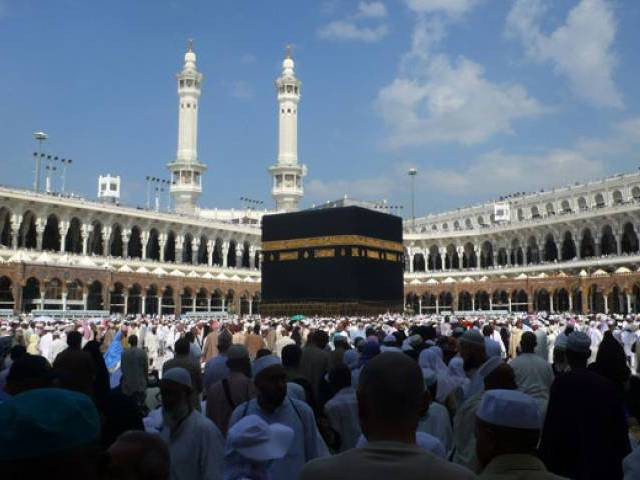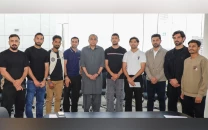Top court tells ministry: Reframe policy for private Hajj quota
SC angry at govt for ‘helping exploit intending pilgrims’

Religious affairs minister has asked his Saudi counterpart to increase the Hajj quota from 179,210 to 194,210. PHOTO: AFP/File
The three-judge bench of the apex court, headed by Justice Ejaz Afzal Khan, directed the ministry of religious affairs to reframe the policy for the distribution of 40 per cent quota to private tour operators, also known as Hajj Group Organisers (HGOs).
The bench asked the ministry to consider 2,033 new tour operators, who were not granted Hajj quotas in view of the court’s 2013 judgment.
Following the recommendations of the Competition Commission of Pakistan, the court urged the ministry to set up a panel for formulating criteria for HGOs, including third-party evaluations.
“The policy must be reviewed/reframed in accordance with the foregoing and a compliance report be submitted within 30 days of receiving this order,” the order stated.
On Wednesday, the court issued an 18-page verdict in a contempt case against the ministry of religious affairs for not allocating quotas to new HGOs in view of its August 27, 2013 decision.
Hajj on visit visas: FIA nabs fraudulent travel agent
Deputy Attorney-General Sohail Mahmood said that this verdict would not affect the government’s current Hajj scheme, in which 60 per cent of quota had already been allocated to common people.
In the verdict, Justice Maqbool Baqir said that monopolising private Hajj arrangements by members of Hajj Organizers Association of Pakistan (HOAP), was also depriving intending pilgrims of better choices.
Creating such monopolies was also in violation of Clause (c) of Article 18 of the Constitution and defeats the provisions of Clause (b) of Article 18 of the Constitution, which provided for regulating trade, commerce and industry in the interest of free competition.
The verdict stated that non-quota holder HGOs were being denied quotas on pretext that the government had no surplus quota.
“The quota allocated by the Kingdom of Saudi Arabia (KSA) to Pakistan is for the people of Pakistan and not for any particular group, segment or association. The quota for Pakistan is bifurcated by the government of Pakistan into two segments, one under the Government Hajj Scheme and the other for Private Hajj Scheme.”
The court observed that there was absolutely no basis, rationale or justification for continuing to grant quota to those who had already been granted such quotas.
Hajj policy unveiled: Govt slashes quota of private tour operators
The verdict stated that only the federal or provincial governments, or a corporation controlled by such governments, could monopolise such trade, business, industry or service to the exclusion of other persons.
“This artificial, unjust and unfair classification created by the Ministry of Religious Affairs between quota holder HGOs, and non-quota holder HGOs … (It) also offends Article 25 of the Constitution, which guarantees all citizen equal protection and equality before law, as differentia has no rationale nexus to the avowed objective of the Hajj policy, of developing plans for efficient Hajj arrangements through provision of services and logistics like affordable lodging and boarding, transport and health care during the Hajj, it rather runs contrary.”





1733130350-0/Untitled-design-(76)1733130350-0-208x130.webp)













COMMENTS
Comments are moderated and generally will be posted if they are on-topic and not abusive.
For more information, please see our Comments FAQ